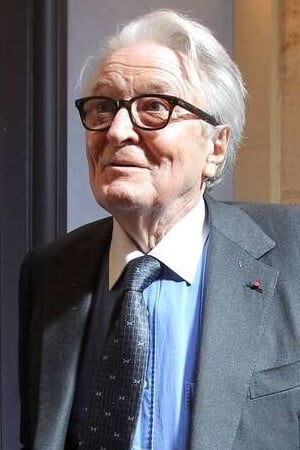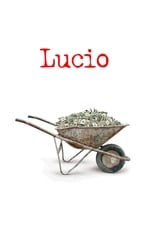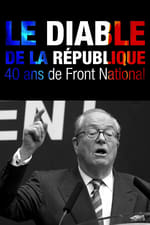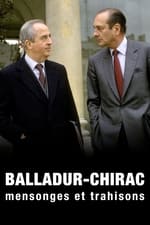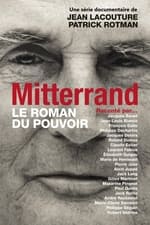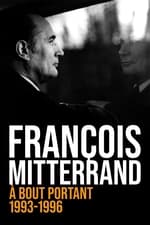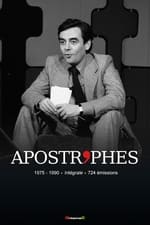Personal Info
Known For Acting
Known Credits 11
Gender Male
Birthday August 23, 1922 (101 years old)
Place of Birth Limoges, Haute-Vienne, France
Also Known As
- -
Content Score
100
Yes! Looking good!
Login to report an issue
Biography
Roland Dumas (born 23 August 1922) is a French lawyer and Socialist politician who served as Foreign Minister under President François Mitterrand from 1984 to 1986 and from 1988 to 1993. He was also President of the Constitutional Council from 1995 to 1999.
Roland Dumas is the son of Elisabeth Lecanuet and Georges Dumas, a civil servant in Limoges's region and Socialist resistant to the German Occupation during the Second World War. shot at by the Gestapo, he conveyed weapons for the Resistance. He was arrested after organizing a boycott of the Berlin Philharmonic Orchestra by French students. After the war, he completed his law and political science studies in the Ecole libre des sciences politiques and the London School of Economics.
As a journalist and lawyer, he defended Jean Mons, Secretary-General of the Defence Committee, from charges of negligence in a case where Mons's assistant was accused of passing secrets of national security to communists. In this, he became close to François Mitterrand, president of the Democratic and Socialist Union of the Resistance (UDSR) party, himself suspected in the same scandal.
In 1956, he was elected deputy for Haute-Vienne département under the UDSR banner. He lost his seat in the 1958 legislative election, which followed the return of General Charles de Gaulle to power. He came back into the French National Assembly between 1967 and 1968 as representative of Corrèze département. As a member of the renewed Socialist Party (PS) led by Mitterrand, he became deputy for Gironde in 1973, then for Dordogne on the occasion of the "pink wave" of 1981. In 1974, he acted as defence lawyer for Hilarion Capucci, who was prosecuted in Israel on charges of smuggling weapons into the country for the PLO.
When President Mitterrand appointed Laurent Fabius as Prime Minister in July 1984, Dumas joined the cabinet as Minister of European Affairs. Five months later, he replaced Foreign Minister Claude Cheysson. He remained in this position until the Socialist defeat in the March 1986 legislative election. Nevertheless, he returned to the Quai d'Orsay after the re-election of Mitterrand in May 1988, until the PS defeat in the March 1993 legislative elections. He was the French Foreign Minister during the collapse of the Soviet Block, the Gulf War, and the negotiations of the Maastricht Treaty.
After losing reelection to the French National Assembly in 1993, he was nominated President of the Constitutional Council in 1995. Under his presidency, the body argued in favour of complete judicial immunity for the French President.
Roland Dumas is a member of the Emergency Committee for Iraq.
In June 2013, during an appearance on the French news channel La Chaîne parlementaire, Dumas claimed that British officials had been preparing for intervention in Syria two years before the start of the Arab Spring. "I was in England two years before the violence in Syria on other business," he said. "I met with top British officials, who confessed to me that they were preparing something in Syria. This was in Britain not in America. Britain was organising an invasion of rebels into Syria."
Accused in the Elf affair, he resigned from the Presidency of the Constitutional Council in January 1999. ...
Source: Article "Roland Dumas" from Wikipedia in English, licensed under CC-BY-SA 3.0.
Roland Dumas (born 23 August 1922) is a French lawyer and Socialist politician who served as Foreign Minister under President François Mitterrand from 1984 to 1986 and from 1988 to 1993. He was also President of the Constitutional Council from 1995 to 1999.
Roland Dumas is the son of Elisabeth Lecanuet and Georges Dumas, a civil servant in Limoges's region and Socialist resistant to the German Occupation during the Second World War. shot at by the Gestapo, he conveyed weapons for the Resistance. He was arrested after organizing a boycott of the Berlin Philharmonic Orchestra by French students. After the war, he completed his law and political science studies in the Ecole libre des sciences politiques and the London School of Economics.
As a journalist and lawyer, he defended Jean Mons, Secretary-General of the Defence Committee, from charges of negligence in a case where Mons's assistant was accused of passing secrets of national security to communists. In this, he became close to François Mitterrand, president of the Democratic and Socialist Union of the Resistance (UDSR) party, himself suspected in the same scandal.
In 1956, he was elected deputy for Haute-Vienne département under the UDSR banner. He lost his seat in the 1958 legislative election, which followed the return of General Charles de Gaulle to power. He came back into the French National Assembly between 1967 and 1968 as representative of Corrèze département. As a member of the renewed Socialist Party (PS) led by Mitterrand, he became deputy for Gironde in 1973, then for Dordogne on the occasion of the "pink wave" of 1981. In 1974, he acted as defence lawyer for Hilarion Capucci, who was prosecuted in Israel on charges of smuggling weapons into the country for the PLO.
When President Mitterrand appointed Laurent Fabius as Prime Minister in July 1984, Dumas joined the cabinet as Minister of European Affairs. Five months later, he replaced Foreign Minister Claude Cheysson. He remained in this position until the Socialist defeat in the March 1986 legislative election. Nevertheless, he returned to the Quai d'Orsay after the re-election of Mitterrand in May 1988, until the PS defeat in the March 1993 legislative elections. He was the French Foreign Minister during the collapse of the Soviet Block, the Gulf War, and the negotiations of the Maastricht Treaty.
After losing reelection to the French National Assembly in 1993, he was nominated President of the Constitutional Council in 1995. Under his presidency, the body argued in favour of complete judicial immunity for the French President.
Roland Dumas is a member of the Emergency Committee for Iraq.
In June 2013, during an appearance on the French news channel La Chaîne parlementaire, Dumas claimed that British officials had been preparing for intervention in Syria two years before the start of the Arab Spring. "I was in England two years before the violence in Syria on other business," he said. "I met with top British officials, who confessed to me that they were preparing something in Syria. This was in Britain not in America. Britain was organising an invasion of rebels into Syria."
Accused in the Elf affair, he resigned from the Presidency of the Constitutional Council in January 1999. ...
Source: Article "Roland Dumas" from Wikipedia in English, licensed under CC-BY-SA 3.0.
Acting
|
|||||||||
|
|||||||||
|
|||||||||
|
|||||||||
|
|||||||||
|
|||||||||
|
|||||||||
|
|||||||||
|
